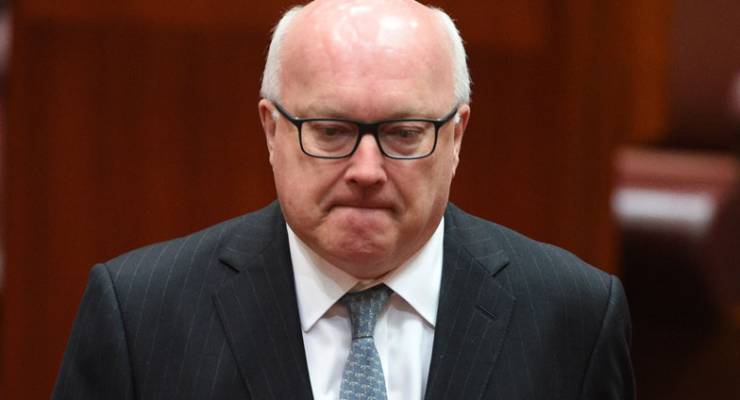
The Attorney-General’s Office recalcitrant handling of a request to see George Brandis’ metadata shows the problems with Australia’s information access scheme.
In late 2014, when Attorney-General George Brandis announced that the government would legislate a mandatory data retention scheme, he fumbled spectacularly when asked by Sky News’ David Speers to define what metadata actually was in what became a Walkley Award-winning interview.
At the time, I filed a freedom of information request for Brandis’ metadata, asking his office to use the definition of metadata the government was intending to use. This request had two purposes: to find out the definition of metadata, and to know who our Attorney-General speaks to during the course of his day in his role as a minister of the government.
In response, I received a Telstra phone bill, with almost all the data blacked out. What followed was an 18-month battle between the Attorney-General’s Office and me to try to get a hold of Brandis’ metadata, with the Office of the Australian Information Commissioner acting as the mediator.
This was an awkward position for the OAIC to be in, as the agency sits in the Attorney-General’s portfolio, and while it is independent, it is also beholden to the whims of the government. At that time, the OAIC was set to be shut down as per the 2014 budget.
I argued that the definition of metadata should extend far beyond a simple phone bill, and when the Attorney-General’s chief of staff Paul O’Sullivan responded, he stated this would mean almost every piece of technology Brandis used would have to be assessed.
“Even if security and privacy concerns could be overcome, so that at least parts of the job could be delegated to others, it remains the case that the attorney-general’s smartphone would need to be taken away from him, perhaps for a significant period of time,” he told me. “It is the AGO’s view that processing the request in accordance with the OAIC’s interpretation of [the FOI request] would hamper the performance of his official functions.”
I argued that it would take no more than a few minutes for an image of Brandis’ phone to be taken and it to be returned to him, and this should not prevent full government transparency. At this point, Brandis’ office simply ceased responding to the OAIC’s requests to follow up, and a request for a teleconference was ignored.
Today the OAIC decided to close the review, and suggested it be referred to the Administrative Appeals Tribunal. An AAT review brings with it an $800 application fee for the person who originally lodged the FOI request.
The decision came a day after the government announced it would no longer proceed with plans to shut down the OAIC, and funded it for $37 million over the next four years to continue responsibility for FoI reviews. While this is good news for government transparency, it still has the same power to refer reviews to the AAT, with the $800 fee that puts reviews out of reach for many ordinary people. While committing to transparency on the one hand with the OAIC funding, the Attorney-General’s own office has shown how stalling and delaying tactics can still stifle freedom of information.








You’ve launched an interesting question, keep going.
Crowdsource the $800, I’ll chip in $100
as Trelevn said, i’d probably chip some in as well
Could this be the harbinger of a Crikey Crusade to take these issues seriously? Not really.
Me 3, if $50 would help continue this saga.
Does Brandis run a private email server?